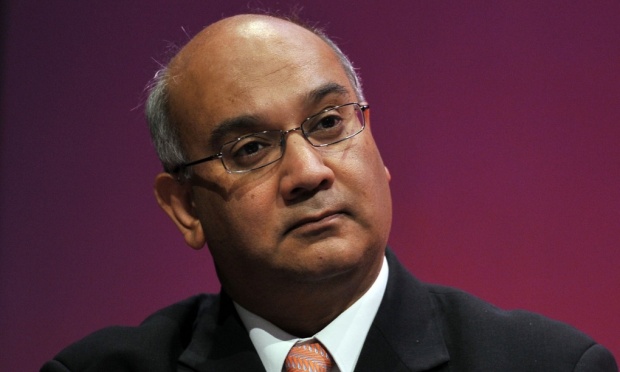Child Sex Abuse Victims Got Death Threats after Inquiry Published Emails
By Sandra Laville and Alan Travis
Survivors of child abuse say they have received death threats after the chairman of a Commons committee released scores of emails containing the identities of four abuse victims. In a letter to the home secretary, the victims, who have been campaigning for changes to the independent child abuse inquiry, condemned the decision by Keith Vaz, chair of the home affairs select committee (HASC), to place the emails which contain the victims’ names and disparaging comments about them, on the committee website. The row is the latest controversy to engulf the independent inquiry, which has had to halt its work over complaints about its structure, lack of transparency and the actions and comments of some inquiry panel members. Lucy Duckworth, of the Survivors Alliance, which represents several victims’ organisations, said: “Since this information was published the individuals have received death threats. In one of the emails a panel member says the panel should ignore the four survivors, calling them ‘these people.’” In the letter from the survivors to Theresa May, they accuse Vaz and the panel members of a breach of trust, and say the comments about survivors in the published documents display “a lack of knowledge of survivor groups and a deep arrogance”. “As individuals who are also survivors, to experience this without the offer of support or apology from HASC, the secretariat or the Home Office is a shameful reflection of process,” they wrote. “The disclosure of confidential email discussion between panel members … including disclosure of personal contact details, reveals an appalling lack of respect by certain panel members for survivors, survivor groups and for fellow panel members … named individuals/survivors have been subjected to social-media hate campaigns as a result of the disclosures and negative attitudes expressed by some panel members. This follows a catalogue of failures … in establishing the inquiry.” After complaints from the victims, the committee began to redact the names of individual survivors from the correspondence on its website. By Thursday 18 out of 96 pages contained redactions. The committee said in a statement: “Last week, some material from the Independent Panel Inquiry into Child Sexual Abuse came into the committee’s possession in the course of our inquiry. The material included directions to panel members about how they should answer questions from the committee, as well as email exchanges between panel members about the panel’s external communications strategy. These emails included the names of third parties. At the request of the individuals concerned, the material has been redacted to remove references to these individuals. The names of all these individuals were already in the public domain.” A committee source defended the decision to publish the documents, saying the survivors involved had already publicly declared themselves as such quite clearly in one way or another. The inquiry in a statement said the documents were provided to the select committee without the knowledge of the majority of the panel members. The statement said: “We are aware of the contents of a letter which the Survivors Alliance is planning to send to the home secretary. We would like to stress that the provision of documents subsequently placed this week on the home affairs select committee website was done without permission or knowledge of seven of the eight panel members or the inquiry secretariat. We have no further comment to make and await the decisions of the home secretary regarding the appointment of a chair and on the future shape of the inquiry.” May is due to announce a new chair for the inquiry and a statutory framework for its investigations in the next week in an attempt to rescue the process before the general election. The two previously selected chairs, Dame Elizabeth Butler Sloss and Fiona Woolf, were forced to resign over their connections to the establishment, while there has been criticism of some panel members and complaints about a lack of transparency in how panel members were selected. The release of the documents came as Vaz called Ben Emmerson QC, counsel to the inquiry, to the committee to defend himself against allegations of bullying by the panel member Sharon Evans. Emmerson said on Monday that Evans, who has given media interviews, had caused “a great deal of damage” to the inquiry by leaking information and by speaking publicly without approval. She was in breach of her duty of confidentiality, he said, and had made misleading statements that had an impact on the work of the inquiry. It is not known who leaked the documents to the HASC committee. Duckworth said the four survivors named in the documentation felt “exposed and vulnerable” and the publication was having a major impact on the organisations and their work. In their letter to May the survivors said: “The release of emails and correspondence constitute a breach of data protection and also a breach of trust. With disregard to who or how the information was leaked, the comments made by [panel member Barbara] Hearn and Evans about us and our agencies demonstrate a lack of knowledge of survivor groups and a degree of arrogance in that … we would not understand the nuances of ‘evidence’. “Additionally they demonstrate a viewpoint that challenging views ‘should be directly corrected or ignored.’”
|
.
Any original material on these pages is copyright © BishopAccountability.org 2004. Reproduce freely with attribution.
